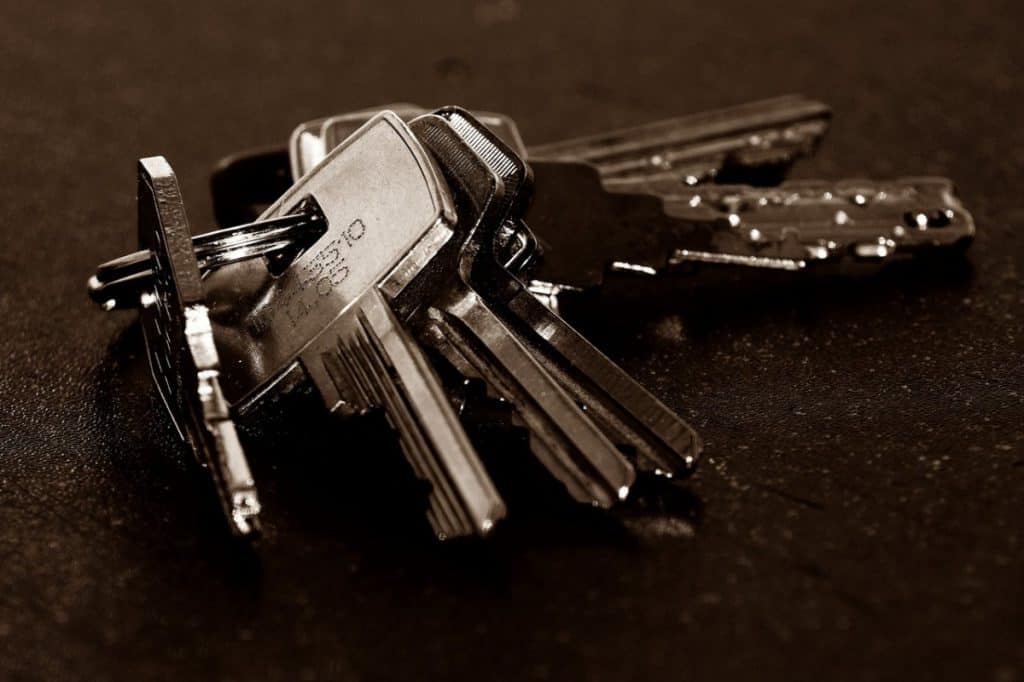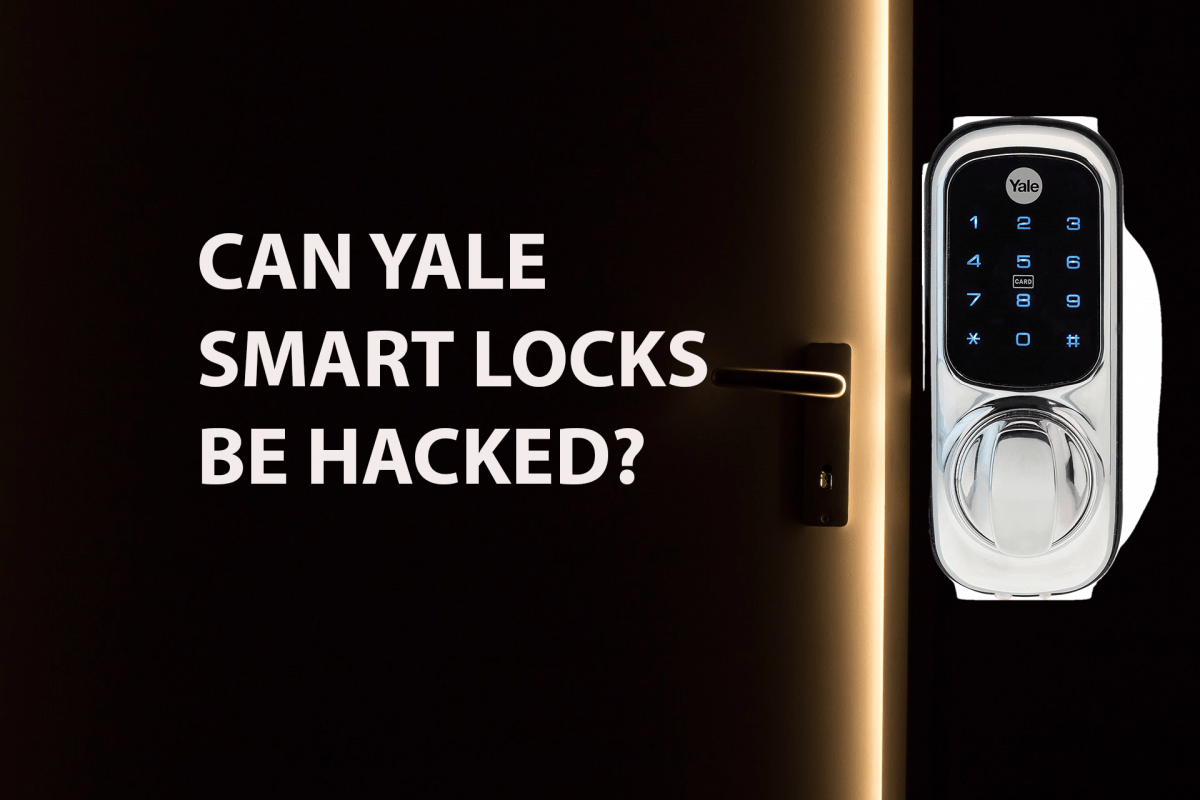I was recently thinking of buying a smart lock and looked at Yales offerings. I come from a computer science background and it occurred to me:
Can Yale Smart Locks Be Hacked?
So I decided to write an investigation into this. This is what I found:
Can Yale Smart Locks Be Hacked? Yes, there’s a variety of accounts of smart locks being hacked. Man In the Middle, brute force and Fuzz attacks have all proven to be successful.
Read on and I will tell you the pros and cons of owning a smart lock, as well as the top Yale smart locks (and most secure from hacking) on the market, and how to ensure security when you have a smart lock system set up.
Pros Of Yale Smart Locks
Convenience
One of the smart lock features that are most attractive for consumers is the convenience that smart locks afford you. If your door already has a deadbolt installed, there would be little to no need to install keys, which could give frequent key-forgetters a sigh of relief. It’s a lot less likely for you to forget your phone than your keys, isn’t it?
And if you need to let someone in while you are away, you can easily open the door for them, or provide them with a custom passcode for them to use. You can create custom passcodes for as many as 25 people for them to enter your house, and enable/disable them as you please. You have near total control over who the lock lets in or out.
They also can be synchronized to existing smart devices you have at home, such as Apple HomeKit, Amazon Alexa, or Google Assistant. You just have to purchase and install the appropriate module accessory for your home system for them to sync up.
Different modules use different protocols. For Yale, the Connected by August module which costs $129 uses Bluetooth and wi-fi. It can be expensive, but it is able to connect with multiple home systems like Alexa, Google Assistant, and Apple HomeKit.
They also have a module that is specific for Apple HomeKit ($49), a Z-Wave module ($49) for smart home hubs like Samsung SmartThings, and a Zigbee module ($49) that works with Amazon Echo and Samsung SmartThings.
Tracking
These smart locks can come with an app you could install to your smartphone or tablet that could enable you to control your lock, or you can use the smart home system you already have installed.
This connectivity to your devices can enable you to access different lock controls, as well as your device history: What times was your door locked or unlocked? Whose passcodes were used?
This way, you can monitor who goes in and out of your home and when.
Lock Pick Proof
Most recent smart lock models are completely keyless, meaning they solely rely on passcodes or connected devices to unlock them. When you switch to smart locks, you make your home invulnerable to lock picking, a popular method used by burglars to break into homes. This worry can now safely leave your mind.

Cons Of Yale Smart Locks
Power Source Dependent
Since smart locks are digital devices, they simply cannot do without a power source. Smart locks still run on batteries and will need replacement every 1 to 20 months, depending on the types of signals they use.
Wifi-connected locks consume the most power and would need replacement at around 1-3 months. Z-wave locks last from 12-18 months, and Bluetooth locks last 12-20 months. If you forget to replace or charge your batteries, you might run a risk of locking yourself out of your home.
Vulnerability to Hacking
This is another con to smart locks being digital: no digital device is completely resistant to hacking. Even the most advanced Yale smart locks are not 100% unhackable.
In fact, in 2018, some hackers have tried hacking smart locks including Yale, and succeeded. This was due to a vulnerability in the Z-wave signals used by these smart lock companies.
Since then, Yale has claimed to have updated their software to make their locks more secure, but digital vulnerabilities can never be completely erased.
Cost
Due to the vast array of features added in smart locks, they are definitely a lot more expensive than your regular doorknobs and locks. They are pieces of pretty high-end security technology, and are priced as such.
The cheapest Yale smart lock costs $99.99. This is only for the body. If you need to sync it with your smart home system you will need to purchase the appropriate module, which will cost an additional $49 or more.
How To Ensure Safety With Smart Locks
No security system is 100% safe. However, you can make the most out of the security system you do have. Here are some tips on keeping your Yale smart locks–and your home–as secure as you could make them.
Update Your Passcodes
Just as with any online or electronic account you may have, it is advisable to change your passcodes regularly. Changing your passcodes can throw off any potential intruders that may have been observing you and your security system.
Remember to pick a unique passcode that is not easy to guess. Some examples of passcode no-nos are birthdays, or something easy like 1234 or 8888. You can check common passwords through a simple Google search and try to avoid using those.
Keep Your Passcodes Safe
Do not share your passcodes with every person you let into your house. If possible, only share it with members of your own household.
If you ever need to share your passcode with anyone else, like some guests, or a plumber or housesitter, some Yale smart lock models could enable you to create custom passcodes for these people, which you could delete and disable when you don’t need them anymore.
Update Your Software Regularly
Yale offers regular software updates for your smart locks. The company is constantly troubleshooting their products and taking into account reviews for any potential bugs or weaknesses in the device’s software.
Every time you receive a notification for a software update, look up what the new changes and improvements are, then if satisfied, update your smart lock.
However, it can also be useful to look at other users’ reviews of the update. Most of the time, updates are harmless and even good, but you never know when they could release a faulty update by mistake.
Monitor Your Smart Lock’s Battery Life
Take note of your particular smart lock’s connection type and corresponding battery life. Most recent models have a battery indicator that would alert you when the battery needs changing, so always be alert and keep some spare batteries on hand.
If your battery dies while you are not around, some models (like the Yale Assure Lock SL) have emergency power outlets that make use of a 9V battery that you stick on the lock for a bit of power that will let you in your house to change the batteries.
Top Performing Yale Smart Locks
Nest X Yale Smart Lock
The Nest X Yale Smart lock ($266.66) is an elegant, completely keyless lock that you can access through your smartphone, or through its built in keypad. You can create up to 20 custom codes for this lock, and enable/disable them as you please.
Since it is a collaboration between Nest and Yale, it is only compatible with a Google or Nest smart home. If you have an Amazon Alexa or Apple HomeKit based smart home, this may not be the lock for you.
Yale Assure Lock SL
The Yale Assure Lock SL is also a popular Yale contender. This costs a bit higher ($299), but it is able to sync with Amazon Alexa, Apple HomeKit, and Google-based smart homes.
It is also completely keyless, and could hold up to 25 custom codes for your friends and family. It also has the added AutoUnlock feature which is available with the Connected by August Module.
Yale Assure Lever Touchscreen
The Yale Assure Lever Touchscreen costs $299, and comes with a door handle and keyhole. It is also compatible with most smart home systems like Amazon Alexa, Apple HomeKit, and Google Assistant. This is also a pretty flexible model.
It has varieties that make use of physical buttons instead of a touch screen, and a version that does have a keyhole if that is what you prefer for your home.
Conclusion
Yale is one of the most established lock manufacturers in the world, so there is no surprise that they would also be one of the leading brands for smart locks in home automation. Yale smart locks add a whole new level of security, convenience, and seamless connection with the other smart devices in your household.
However, no security system is infallible; every security system has its own risks. You will have to be the judge on whether the benefits of Yale smart locks outweigh the risks for your household.
If you’re interested in the various strategies hackers use to infiltrate your smart locks then check out my in depth article on Can Smart Locks Be Hacked? You Really Should Read This.
P.S.
That’s it for this article. I hope you enjoyed reading it and if you think it might be useful for someone else then please share it on social media, email or your own website! It really encourages us to write more content and grow the site!
If you’re interested in reading more about smart light, smart garages and smart homes checkout some of the other houshia categories including:

